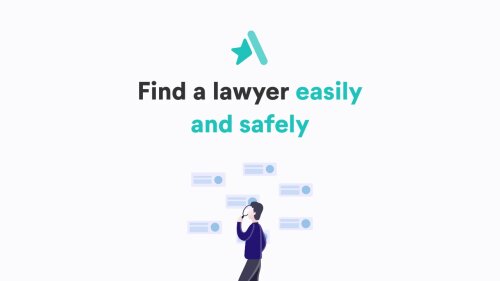Best Appeal Lawyers in Oslo
Share your needs with us, get contacted by law firms.
Free. Takes 2 min.
List of the best lawyers in Oslo, Norway
About Appeal Law in Oslo, Norway
Appeal law in Oslo, Norway, pertains to the legal process by which a verdict or ruling from a lower court can be reviewed and potentially overturned or modified by a higher court. The appellate process ensures that legal proceedings are conducted fairly and in accordance with legal principles and can be a complex and nuanced field, necessitating a solid understanding of local statutes, case law, and procedural rules.
Why You May Need a Lawyer
There are several situations where you might require legal help for an appeal in Oslo:
Disagreement with a Verdict: If you believe the court's decision was erroneous based on the evidence or applicable law.
Procedural Errors: Instances where the trial process did not follow legal requirements, possibly affecting the judgment.
New Evidence: If new evidence has emerged that could potentially change the outcome of the case.
Sentencing Issues: When you believe the sentence rendered was too harsh or inappropriate based on the facts of the case.
Legal Misinterpretation: If the court misinterpreted or misapplied the law in reaching its decision.
Local Laws Overview
Appeals in Oslo are governed by specific local laws and regulations. Key aspects include:
The right to appeal is generally enshrined in Norway’s legal system, allowing judgments in both civil and criminal cases to be appealed.
The process involves submitting a notice of appeal to the appropriate appellate court, often the Borgarting Court of Appeal in Oslo.
There are strict deadlines for filing an appeal, typically within a few weeks of the initial decision.
Legal representation is crucial as the appellate process involves intricate legal arguments and a thorough understanding of legal precedents and statutes.
The appellate court primarily reviews the application of law and the procedural aspects rather than re-examining all factual evidence.
Frequently Asked Questions
1. What is an appeal?
An appeal is a legal process in which a higher court reviews the decision of a lower court to determine if there were legal errors that affected the verdict.
2. How long do I have to file an appeal?
The deadline for filing an appeal is typically 3-4 weeks from the date of the initial decision, but it is crucial to check specific timelines for your case.
3. What are the chances of winning an appeal?
The chances of winning an appeal depend on the specifics of your case, such as the presence of legal errors and the strength of your legal arguments. Consultation with a lawyer can provide a better assessment.
4. Do I need a lawyer to file an appeal?
While it’s not mandatory, having a lawyer is highly recommended due to the complexity of appellate procedures and legal requirements.
5. What happens if I lose the appeal?
If you lose the appeal, the original court decision stands. In some cases, further appeals to higher courts, such as the Supreme Court, may be possible.
6. How much does an appeal cost?
The cost can vary significantly based on the complexity of the case, legal fees, and other associated expenses. Consulting with a lawyer can provide a more accurate estimate.
7. Can I present new evidence during an appeal?
Generally, appeals focus on legal and procedural errors, not on new evidence. However, in exceptional circumstances, new evidence may be considered if it could not have been obtained during the original trial.
8. How long does the appeal process take?
The duration of an appeal can vary but typically takes several months, and in some cases, over a year, depending on the court's schedule and the complexity of the case.
9. What is the role of the appellate court?
The appellate court reviews the application of law and procedural aspects of the case to determine if there were errors that warrant changing the original decision.
10. Can both parties appeal a court decision?
Yes, both the plaintiff and the defendant have the right to appeal a court decision if they believe there has been a legal error or unjust outcome.
Additional Resources
The following resources can be particularly helpful if you are seeking more information or legal assistance with an appeal in Oslo:
The Norwegian Bar Association: Provides directories of qualified lawyers and general legal information.
Borgarting Court of Appeal: The main appellate court in Oslo, where most appeals are filed and heard.
Oslo District Court: Information on initial court procedures and decisions.
Legal Aid Organizations: Offer assistance for those who cannot afford private legal representation.
Norwegian Courts Administration: Provides resources and information about the Norwegian judiciary system.
Next Steps
If you need legal assistance with an appeal in Oslo, follow these steps:
Consult with a Lawyer: Seek advice from a qualified lawyer who specializes in appeals. They can assess your case and provide guidance on the next steps.
File a Notice of Appeal: Ensure that your appeal is filed within the designated deadline to avoid forfeiting your right to appeal.
Prepare Legal Arguments: Work with your lawyer to prepare the necessary legal documents and arguments to support your appeal.
Attend Appellate Hearings: Be prepared to attend hearings and present your case to the appellate court.
Follow Legal Advice: Maintain communication with your lawyer and follow their advice to navigate the appeal process effectively.
Lawzana helps you find the best lawyers and law firms in Oslo through a curated and pre-screened list of qualified legal professionals. Our platform offers rankings and detailed profiles of attorneys and law firms, allowing you to compare based on practice areas, including Appeal, experience, and client feedback.
Each profile includes a description of the firm's areas of practice, client reviews, team members and partners, year of establishment, spoken languages, office locations, contact information, social media presence, and any published articles or resources. Most firms on our platform speak English and are experienced in both local and international legal matters.
Get a quote from top-rated law firms in Oslo, Norway — quickly, securely, and without unnecessary hassle.
Disclaimer:
The information provided on this page is for general informational purposes only and does not constitute legal advice. While we strive to ensure the accuracy and relevance of the content, legal information may change over time, and interpretations of the law can vary. You should always consult with a qualified legal professional for advice specific to your situation.
We disclaim all liability for actions taken or not taken based on the content of this page. If you believe any information is incorrect or outdated, please contact us, and we will review and update it where appropriate.
















